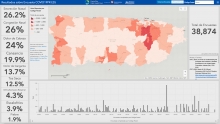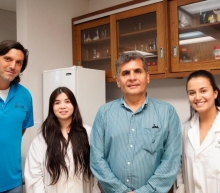Technological innovation at the service of the environment: Quebradillas cobitos find refuge in 3D shells
Quebradillas - On the beaches of this municipality, hermit crabs face a silent dilemma: there are not enough shells to protect their soft bodies. Faced with scarcity, many resort to pieces of trash as shelter. Now, a scientific and community initiative is turning to an unexpected tool to address the crisis: shells made with 3D printers.










